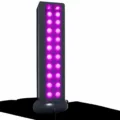Solution-focused therapy is a type of counseling that emphasizes people’s strengths and aims to help them effectively solve current problems. Rather than dwelling on past issues, it looks at present challenges with a growth mindset and helps clients envision the future they want.
What is Solution-Focused Therapy?
This therapeutic approach focuses on solutions, rather than problems. The basic principles are:
- Focusing on the present and future rather than the past
- Exploring strengths and resources the client possesses
- Establishing reasonable, achievable goals for the client
- Changing perspective toward obstacles into opportunities
In essence, it enables people to construct solutions by exploring what is already working and how they envision life being even better. Small incremental changes add up over time.
Solution-Focused Therapy Techniques
Counselors using this approach draw heavily on techniques like:
- Goal setting: The client is encouraged to establish goals and periodically evaluate progress. This fosters self-efficacy.
- Identifying exceptions: Times when the problem could have occurred but did not are explored for insights.
- Scaling questions: Rating progress on a scale of 1-10 helps highlight accomplishments.
- Compliments: Noticing client strengths reinforces resourcefulness.
- Future projections: Imagining life beyond the current problem helps crystallize solutions.
Does Solution-Focused Therapy Work?
Yes, solution-focused therapy has strong research support. Multiple studies find it effectively helps clients change perspective, achieve goals, and resolve issues including:
- Anxiety
- Depression
- Trauma
- Relationship challenges
- Behavioral problems
It empowers clients to construct solutions tailored to their unique lives by embracing a wellness mindset focused on aspirations, strengths, and possibilities rather than diagnoses and limitations.
Solution-Focused Therapy vs Other Types of Counseling
While many types of therapy focus on past events, experiences, and family dynamics, solution-focused therapy stays firmly rooted in the present. Instead of devoting attention to why problems originated, it works actively with clients to generate solutions.
Other key differences are that it:
- Looks forward rather than back
- Concentrates on strengths instead of weaknesses
- Encourages small changes
- Fosters client self-efficacy
Getting the Most Benefit From Solution-Focused Therapy
To optimize success with this approach:
- Have clear goals: Be as specific as possible about desired outcomes.
- Focus on growth: Instead of limitations, concentrate on using and building strengths.
- Monitor progress: Track accomplishments between sessions.
- Highlight exceptions: Note when problems could have happened but did not.
- Use support systems: Share insights with family/friends for encouragement.
Solution-focused therapy guides people to draw on inner wisdom and resources to create the changes they wish to see. With an attitude of possibility and resilience, you can overcome current challenges and achieve inspiring goals.
Frequently Asked Questions
How long do clients typically see a solution-focused therapist?
Many clients achieve their goals in just 5-8 sessions. Progress depends on the client, the issues being addressed, motivation for change, and other factors.
What issues can solution-focused therapy help with?
This approach has been successfully used to help people with many issues including depression, anxiety, trauma, relationship problems, behavioral challenges, stress, life transitions, and more.
Will my therapist focus on my childhood experiences?
No, solution-focused therapists concentrate on the present and future. Exploring past events or experiences may be helpful context in some cases but is not the primary focus.
What if I face setbacks during the therapy process?
Setbacks and obstacles are a normal part of growth. Your therapist will reframe them as learning opportunities and have you identify the progress you have made.
How will I know if solution-focused therapy is working for me?
You will start noticing positive changes in perspective, enhanced clarity around goals, greater self-efficacy, solutions beginning to take shape, and progress toward the future you envision.









